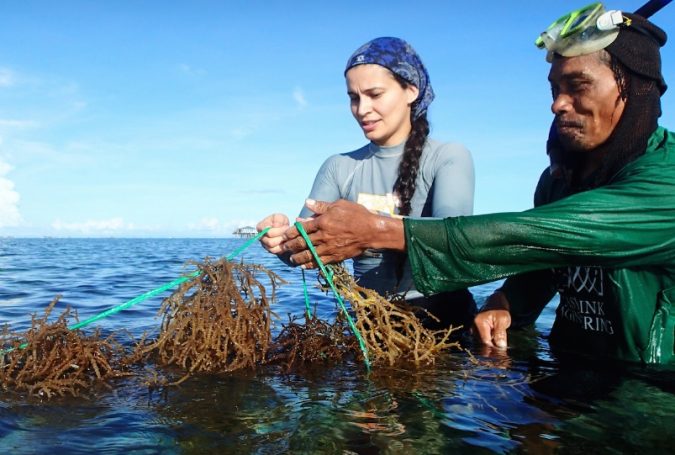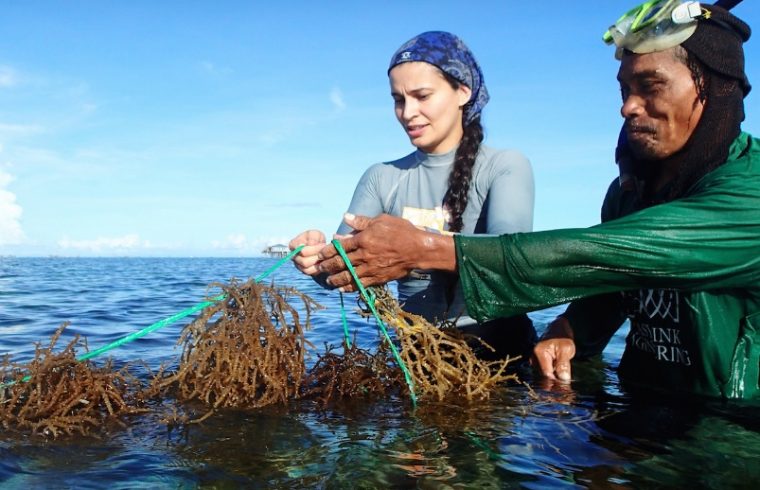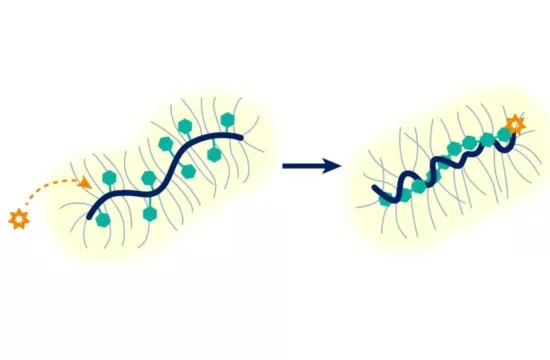An international expert team of 37 seaweed scientists from across the globe has warned that the multi-billion-dollar seaweed farming industry – which has overseen rapid growth in recent years – must balance economic profitability with environment, human, and organism health to ensure its long-term survival.
Researchers on the international GlobalSeaweedSTAR program funded by UK Research and Innovation and the United Nations University Institute on Comparative Regional Integration Studies (UNU-CRIS) have published an international policy brief, issuing a series of recommendations to improve the resilience and sustainability of the industry.
Seaweed cultivation is the most rapidly expanding sector in aquaculture production, accounting for more than 50 per cent of total global marine production, equating to around 34.7 million tonnes. Rapid growth in the past 50 years, meant the industry reached a value of USD 14.7 billion in 2019. The industry supports the livelihoods of over 6 million small-scale farmers and processors, many of whom are women, in predominantly low and middle-income countries.
Seaweed cultivation is now receiving increased interest from higher-income counties as a nature-based solution to economic development, contributing greatly to the UN Sustainable Development Goals (SDGs) and the UN Decade of Ocean Science for Sustainable Development (2021 – 2030).
Seaweed is already widely used in food, cosmetic, pharmaceutical, and agriculture industries and has potential as a biofuel. Seaweed farming increases and restores biodiversity by providing habitats for marine creatures and can help to mitigate climate change through carbon capture and methane emission reduction.
There is also a growing commercial demand for higher-value seaweed-derived products, such as hydrocolloids and for food ingredients, medical treatments, and as a specialist agar, used as a laboratory medium for COVID-19 testing.

The rapid expansion of the industry though has been in tandem with increasing pressures from warming seas caused by climate change and an over-reliance on certain species, which has seen the industry ravaged by pests and diseases.
The policy brief’s lead author and GlobalSeaweedSTAR program leader Prof Elizabeth Cottier-Cook said: “Coastal communities in low to middle-income countries have come to rely on seaweed farming for their livelihoods, but we are already seeing the detrimental impacts of climate change and a lack of biosecurity protocols on this industry.”
“Warming seas have made coastal waters uninhabitable for some species, while an over-reliance on a few species of seaweed and the widespread importing of non-native stock has allowed pests and disease to spread through entire farms.”
“Our policy brief recognizes the importance and the potential of this industry in helping to alleviate poverty in developing nations and in meeting the UN Sustainable Development Goals.”
“However, improvements in biosecurity, pathogen identification and reporting systems, the establishment of seed-banks and nurseries to reduce the dependence on imports, and the conservation of genetic diversity in wild stocks are urgently required if the industry is to prosper.”
“These challenges must be addressed in combination with the establishment of incentives, policies and capacity building initiatives, which protect livelihoods, are gender-responsive and increase the resilience, particularly of the small-scale farmers and processors and the wider environment, to the impacts of climate change and the globalization of this industry.”
Co-author of the policy brief, UNU-CRIS Senior Research Fellow and Coordinator of its Climate and Natural Resources Cluster Dr. Nidhi Nagabhatla said: “As world leaders gather at Climate COP26 to discuss climate solutions, emerging evidence of seaweeds aquaculture role in mitigation and adaptation to climate impacts offers potential for building coastal resilience for communities and ecosystems.”
“Integrated solutions with multiple benefits remain core towards building a new ocean economy and to conserve the global coastal and marine ecosystems while contributing to tackling food (and nutritional) insecurity and climate change, this policy message decode this argument pointing to the Seaweed industry.”
Director of UNU-CRIS and co-author of the policy brief Philippe De Lombaerde said: “The global policy brief brings together 37 experts from 30 institutions and 18 countries to collective outline a message for creating sustainable value chains, inclusive production systems, and gender-balanced policies for the rapidly expanding seaweed.”
The policy brief has outlined eight recommendations, ranging from developing new international policies and regulations to establishing a series of regional seaweed research networks to ensure policy improvements are aligned across the industry.







